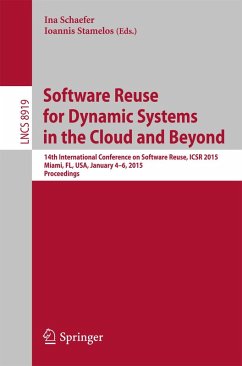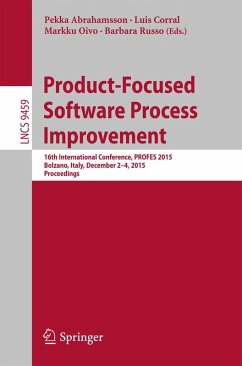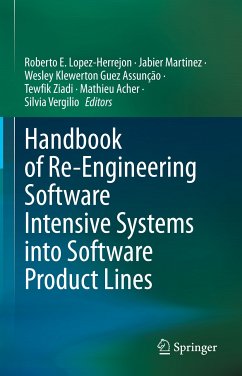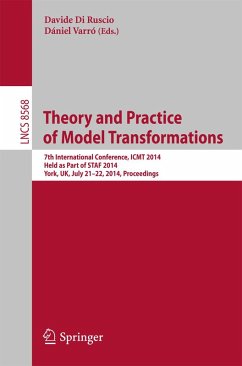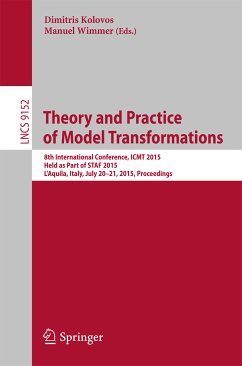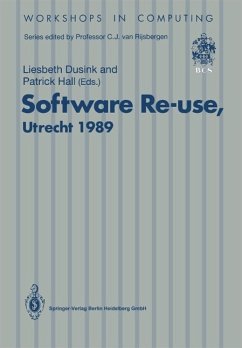
Information Systems Reengineering, Integration and Normalization (eBook, PDF)
Versandkostenfrei!
Sofort per Download lieferbar
36,95 €
inkl. MwSt.

PAYBACK Punkte
18 °P sammeln!
Taking a very practical approach, the author describes in detail database conversion techniques, reverse engineering, forward engineering and re-engineering methodologies for information systems, offering a systematic software engineering approach for reusing existing database systems built with "old" technology. He demonstrates how the existing systems can be transformed into the new technologies with the preservation of semantic constraints and without loss of information.In this third edition, with a new chapter on Data Normalization the author shows once the databases have been converted, ...
Taking a very practical approach, the author describes in detail database conversion techniques, reverse engineering, forward engineering and re-engineering methodologies for information systems, offering a systematic software engineering approach for reusing existing database systems built with "old" technology. He demonstrates how the existing systems can be transformed into the new technologies with the preservation of semantic constraints and without loss of information.
In this third edition, with a new chapter on Data Normalization the author shows once the databases have been converted, how to integrate them for consolidating information, and how to normalize them so that they are efficient and user friendly.
Many examples, illustrations and case studies together with questions and answers ensure that the methodology is easy to follow. Ideal as a textbook for students studying information systems theories, Information Systems Reengineering Integration and Normalization will also be a valuable management reference book for Information Technology Practitioners. Additional material is available on www.extramaterials/978-3-319-12294-6
In this third edition, with a new chapter on Data Normalization the author shows once the databases have been converted, how to integrate them for consolidating information, and how to normalize them so that they are efficient and user friendly.
Many examples, illustrations and case studies together with questions and answers ensure that the methodology is easy to follow. Ideal as a textbook for students studying information systems theories, Information Systems Reengineering Integration and Normalization will also be a valuable management reference book for Information Technology Practitioners. Additional material is available on www.extramaterials/978-3-319-12294-6
Dieser Download kann aus rechtlichen Gründen nur mit Rechnungsadresse in A, B, BG, CY, CZ, D, DK, EW, E, FIN, F, GR, HR, H, IRL, I, LT, L, LR, M, NL, PL, P, R, S, SLO, SK ausgeliefert werden.



